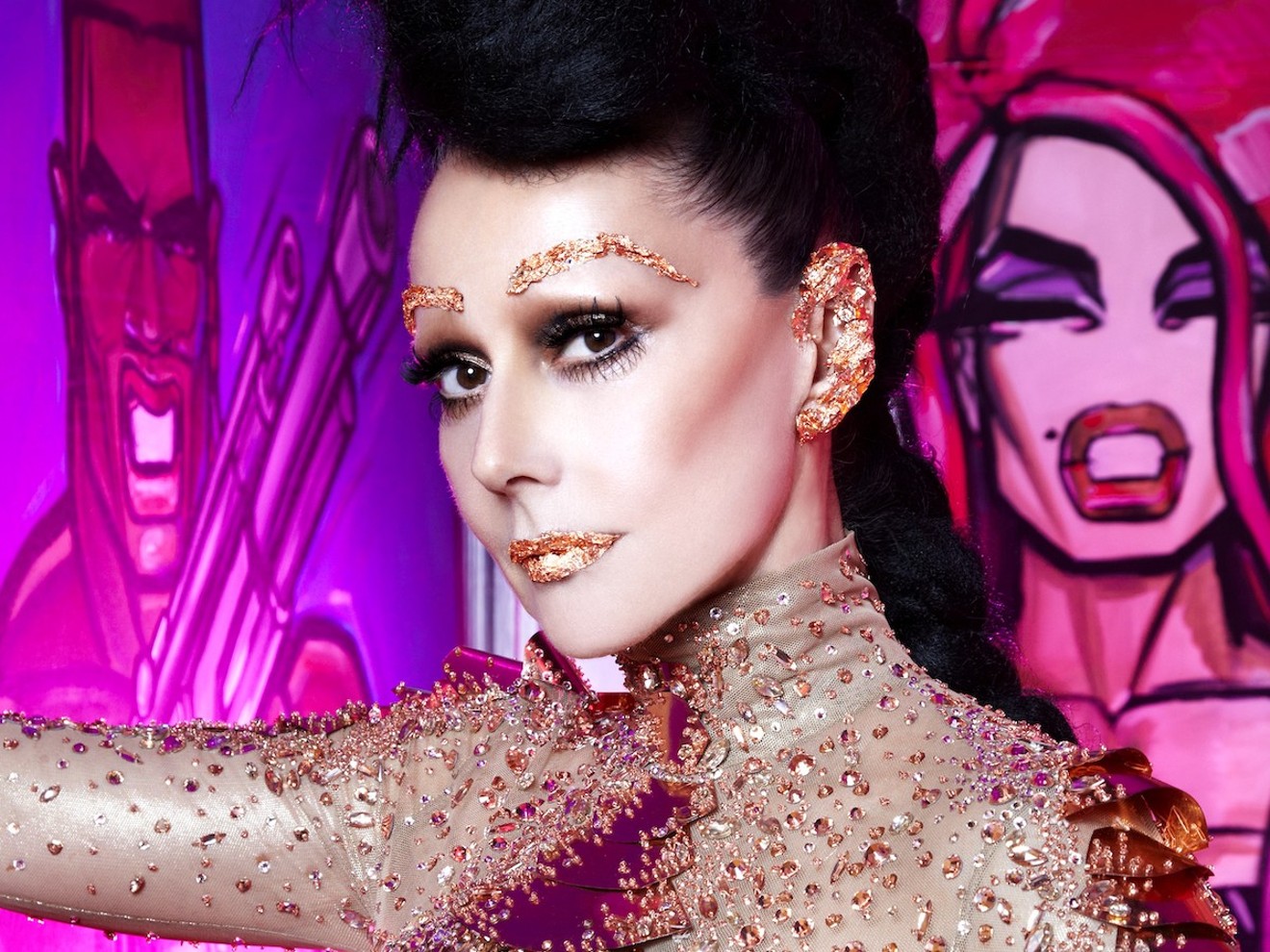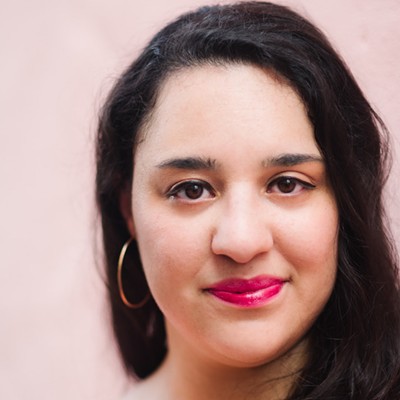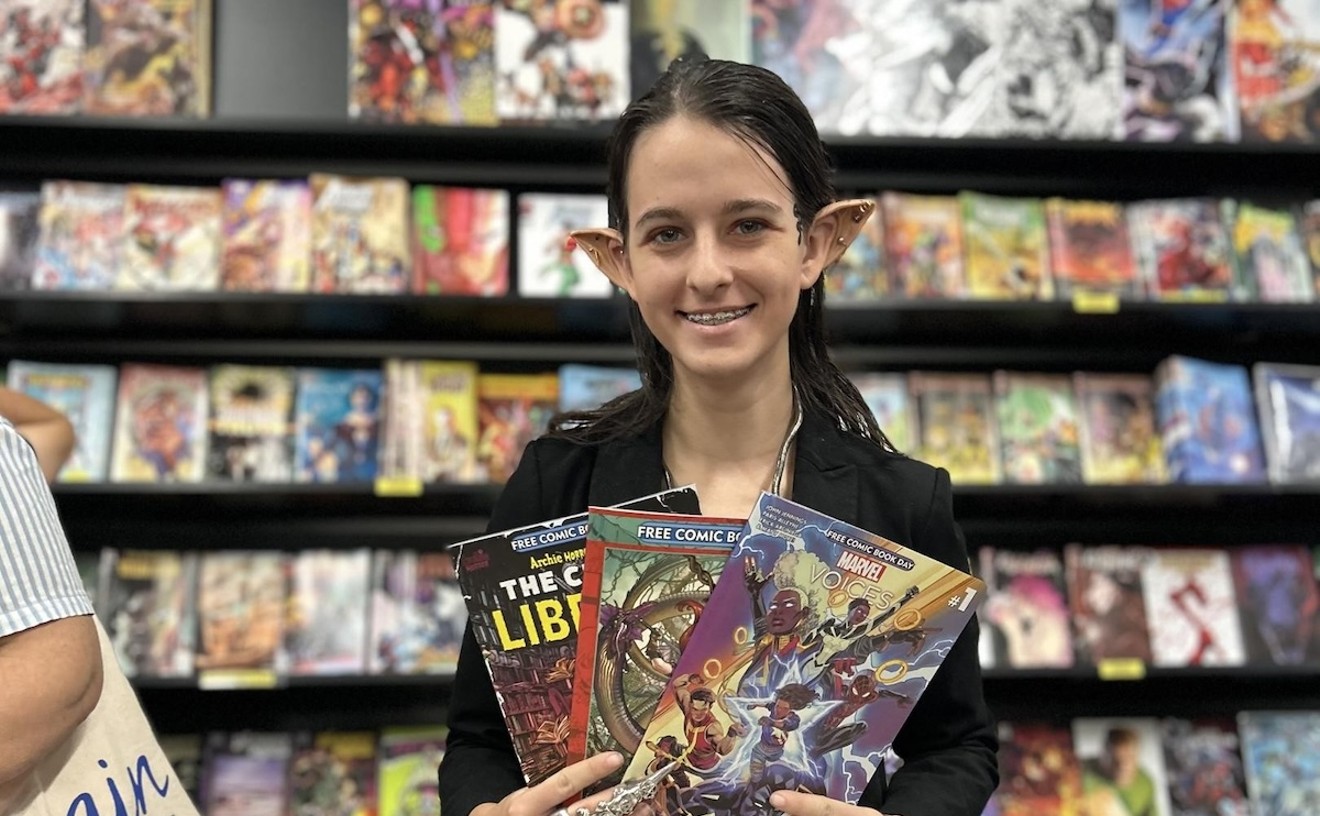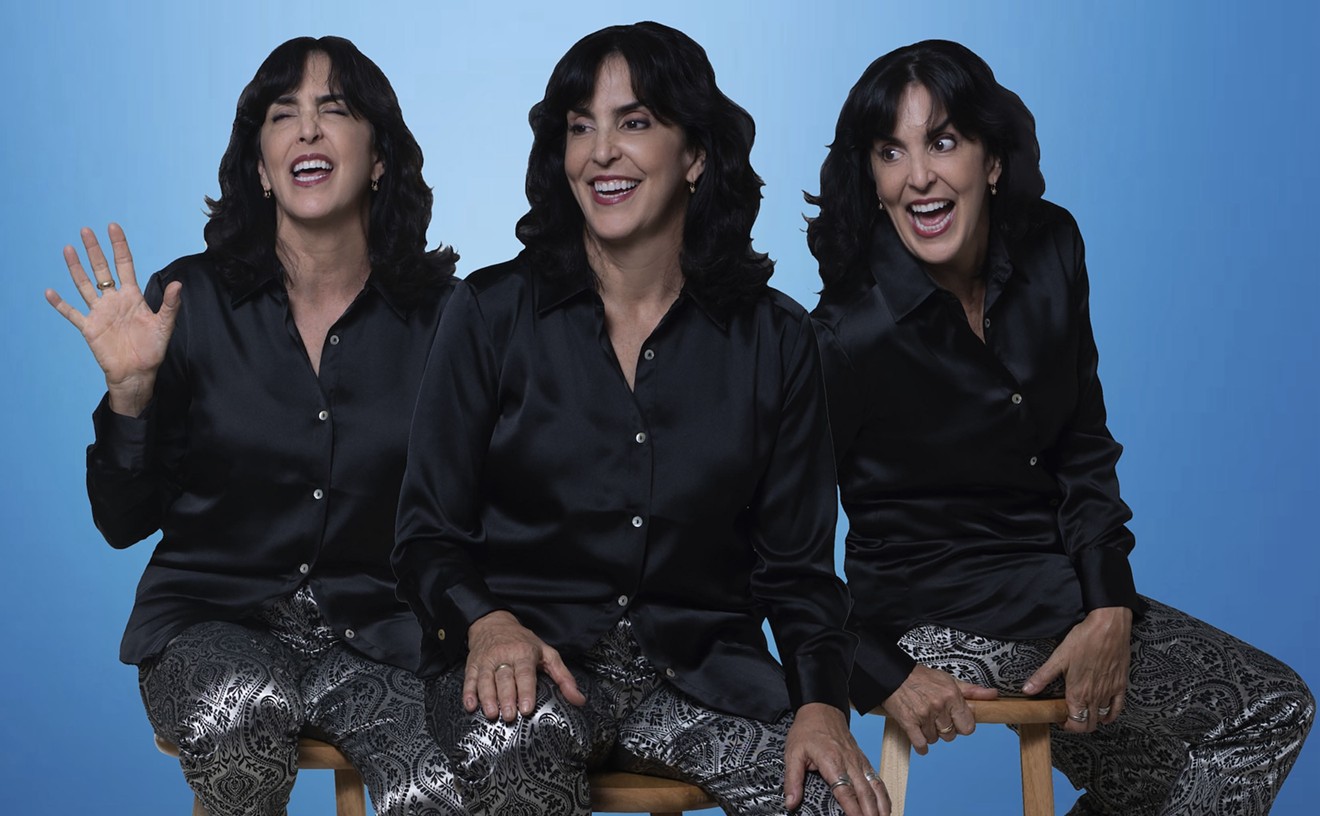“Sorry,” she says after the momentary disruption. “[It was] someone I need to see today.”
Bartsch is a busy woman; it's hard to pin her down. But once she gets going, she doesn't stop. Her mind is aflutter with memories of a life lived fabulously, with famous friends and extravagant clothing.
And she's still going, bringing her unmistakable brand of wild parties to Miami once again, this time with another installment of the cabaret show Bareback Follies, starring icons such as close friend Amanda Lepore and Miami's own queen Queef Latina, along with more than a dozen other performers. The Brickell supper club El Tucán hosts the show monthly.
Bartsch is not just another party planner flocking to Miami’s ongoing entertainment boom. "I was in Miami doing events in '88 at the Warsaw," she remembers. But the sit-down, dinner-party vibe of the Bareback Follies shows represent a change from the wild club parties that have become her trademark over the past few decades.
“It's kind of a new experience,” she says. “It’s comedy meets opera singing meets burlesque meets everything. It's not a circus thing or a singing thing; it's a mix. It's like an old-school variety show.” Don't mistake “old-school” for tame, though. "Some of it is raunchy, and it's not serious; it's whimsical.”
Born in Switzerland before moving to London at the age of 17, Bartsch got the taste for bringing people together through parties when she moved to New York City in the early '80s. After growing disappointed with the fashion game of New Yorkers, whom she found to be preoccupied with pricey labels rather than self-expression, she put together a showcase of up-and-coming London designers in New York."The club is basically a place to show your art. It's like an art gallery.”
tweet this
“In London, every five minutes you had a completely new look, a totally new aesthetic, and I missed that. So I'm here in NY and I'm going, Why not import what I miss?”
She opened a location in SoHo, “which was then a dead area full of truckers,” to great interest and fanfare. From then on, she was hooked.
“I got the taste for uniting people and that euphoria where you see hundreds of people feeling, connecting, and enjoying themselves, and laughter and flirting and saying hello to each other even if they don't know each other.”
Her parties attracted an avant-garde, queer crowd. She considers her gatherings to be her contribution to the art world.
“I like people expressing themselves. I say ‘alternative art.’ It's not necessarily about a painting on a wall or a sculpture. It's about people using their body. Amanda [Lepore] is art. I mean, what she's done to herself, from the sex change to building this Hollywood ideal, dream woman. It's basically manmade, so that's art. I think people doing looks is art, expressing themselves, using their body as a canvas. I definitely attract that and encourage it. A lot of people are discovered through being at the events that I do... because they're talented. RuPaul is one of many; she started with me, really. That was in the club. The club is basically a place to show your art. It's like an art gallery.”
Bartsch's parties are iconic gatherings for the kings and queens of the gay community. “I definitely have an affiliation with the gay community. I'm straight, I'm hetero, but I definitely am very attracted to the gay culture. They seem to have so much more fun. I remember, in the '80s, the gays have more fun than the straights.”
Of course, the '80s were one of the gay community’s most tragic periods. During the AIDS crisis, Bartsch remembers “absolute devastation” as she watched friend after friend die without explanation. She recalls visiting German singer Klaus Nomi in the hospital and witnessing the medical staff wearing protective gear while treating him.
“There were moments where you were afraid to breathe,” she remembers. "You didn't know how you're going to get this illness. That alone was a massive shock to us, our freedom, our reality: that you could die from loving somebody.”
Bartsch responded by organizing the Love Ball in 1989, raising millions of dollars for the cause. “That came out of pain, losing hundreds of friends all over the place. I decided to do something to help my pain.”
“I've had a magical journey,” she says. “There has been pain, there [are] problems, but on the whole it's listening to my gut.” Asked how much of her fabulous life she envisioned or planned for when she left Switzerland as a teenager, she says she only ever knew one thing for sure.
“My only goal in life, generally, on the whole, has been to be in charge of my own time. I would never want to do a 9-to-5 situation; I couldn't deal. I think I once worked for somebody for a year — that was it. The rest, I've always created my own world.”
Bareback Follies, hosted by Susanne Bartsch
8 p.m. Tuesday, April 25, at El Tucán, 1111 SW First Ave., Miami; 305-535-0065; eltucanmiami.com. General admission costs $25. Table reservations are also available.












